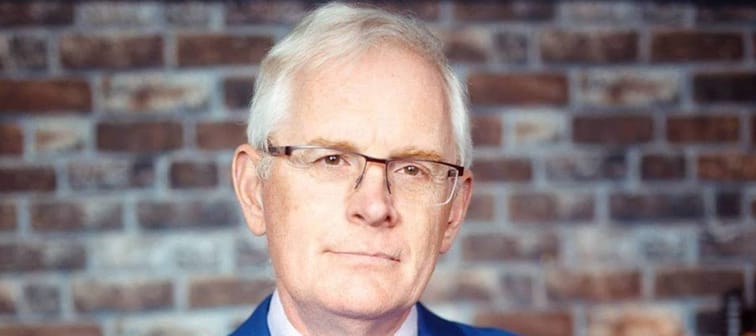Mark Tilbury: Your net worth depends on this money milestone
Mark Tilbury is the latest in a long line of investing gurus to encourage investors to focus on money milestones, such as the first $100K.
“This is the best piece of advice I’ve ever heard about building a high net worth,” explained Tilbury. “Don't worry about earning millions; instead, focus on the first $100,000 because, after that, your net worth will go crazy.”
A better online investing experience
Easy to use and powerful, Qtrade's online trading platform puts you in full control with tools and resources that help you make well-informed decisions.
Invest NowWhy this tough money milestone matters
In a 2023 survey, released by Deloitte, it was found that more than 8 in 10 (86%) of those in the Gen Z demographic had less purchasing power than baby boomers did when they were in their 20s. Adding to the problem are increased levels of student debt and the significant increase in housing costs. As a result, more than half of Gen Z reported living paycheque to paycheque.
Even with purchasing power diminished and higher debt levels investing gurus, like Charlie Munger and Mark Tilbury, emphasize the importance of disciplined saving and the power of compound interest.
“Think of your money like a snowball,” Tilbury said. “You roll it down a hill by investing money, and as it rolls, it picks up more snow, which is your compound interest. The bigger your snowball gets, the more snow it collects and, therefore, the more compound interest you make.”
To illustrate his point, Tilbury used an example of investing $10,000 annually into a low-cost index fund with a 7% average yearly return. Using this approach, an investor would grow their investment from $0 to $100,000 in just 7.84 years. Repeat this process, going from $100,000 to $200,000, and it would only take 5.1 years — 35% faster when doubling that initial $100K investment and a trend that would continue as long as you keep investing.
More: Find the best investment account
After you hit $100,000 “compound interest stops being lame,” says Tilbury. “Getting that chunk of money as fast as possible is the key. [...] Once you get to this point, it’s almost inevitable that you’ll be wealthy if you just invest in a low-cost index fund.”
Tilbury isn't the first to emphasize the importance of this money milestone — and credits billionaire investor, the late Charlie Munger, with identifying this money milestone as pivotal for growing your personal net worth. The late Charlie Munger described it as "[it's] a b—-, but you gotta do it" because “after that, you can ease off the gas a little bit.”
Why should you listen to Charlie Munger and Mark Tilbury?
When it comes to advice, the personal finance space is pretty crowded. So, why should investors consider investing advice from late billionnaire invester, Charlie Munger, and current YouTuber investing personality, Mark Tilbury?
Because, both Munger and Tilbury took their own advice.
As history shows, Munger was a self-made billionaire. While his earnings as a real estate lawyer would have been substantial, the majority of his net worth came from smart, disciplined investments. At the time of his death, in November 2023, Munger's net worth was approximately USD$2.6 billion, according to Forbes Profile.
Mark Tilbury also amassed a fortune through disciplined investing strategies. As of 2023, Tilbury's net worth is approximately USD$8 million. According to his own statements, he earns USD$60,000 per week through various sources of income, including dividends and online sales through his YouTube channel.
How do you make your first $100K?
Hitting that $100,000 milestone — and getting your investments to help grow your net worth — is tough for any investor. To help, Tilbury suggests following the GROWTH method:
- G — Gain control of your finances
- R — Root your investments
- O — Optimize your tax management
- W — Weed out your debts
- T — Tap into additional income streams
- H — Heightened self-discipline
Budgeting is key to gain control of your finances
There’s only one way to gain control of your finances, according to Tilbury — budgeting.
“Budgeting isn't a rule book designed to stop you from having fun,” he said. “It's more like a guide which navigates you towards more informed choices. I'm not saying you have to be super frugal with your money, but you do need to understand the difference between your needs and your wants.”
More: 7 Apps that help with budgeting and saving
Champion your investments by making your savings automatic
As for rooting your investments, Tilbury is all for investing a fixed sum of money each month — whether it's $25 or $250.
Once you've set up an automatic withdrawal from your chequing account to your savings account (or better still, your direct investing account), make it a habit to buy an increasing number of shares in a low-cost index fund. Good options include any broad-based exchange-traded fund, such as Vanguard's S&P 500 Index ETF (VFV), which gives investors exposure to American companies, or the iShares Core S&P/TSX Capped Composite Index (XIC), which gives investors exposure to Canadian firms. Then leave your money to grow.
More: Find the best online discount brokerage for your investing needs
Pay less tax
“It's as simple as this: Avoid paying tax,” explains Tilbury.
Once you get your money working for you, it's time to optimize your tax management. Do this by claiming all available tax credits and deductions, maximizing your tax-advantaged retirement accounts and tax-deferred savings accounts, or even starting a business and making the most of write-offs.
“Let me make something very clear: tax avoidance is completely fine and something that smart people do," explains Tilbury. "Tax evasion, on the other hand, is illegal and not what I'm talking about."
To help, consider using an online tax program that helps you identify potential tax deductions.
More: Find the best Canadian tax return software for your needs
Tackle your debt
To secure your spot in the realm of the high-net-worth, you have to pay down your debts. Tilbury suggests tackling your debts using the debt avalanche method, where you pay down loans with the highest interest rate, first.
While paying down your most expensive debt is critical, it's also a good idea to find ways to lower the cost of all your debt. For instance, if you carry a balance on your credit card, consider getting a low-interest card — to help reduce how much interest you pay on this debt. If possible, consider a consolidation loan that lets you merge a few high interest debts into one, lower interest loan.
More: Learn more about loans and how to reduce your borrowing costs
Increase your income
One of the last tactics in Tilbury's GROWTH method is to increase your income. Whether this is through a side-hustle, opening your own business or actively looking for pay increasese through promotions, the key is to grow your earnings.
Tilbury is a big fan of income diversification and growth using a side hustle — as evidenced by the more than USD$13,000 he earns from his YouTube channel, each week.
Bottom Line
Tilbury's final step to becoming a millionaire is to “find your inner discipline” to put all these steps into practice. "Discipline is the currency of success. The more you mint, the wealthier your future will become.”
Sponsored
Trade Smarter, Today
With CIBC Investor's Edge, kick-start your portfolio with 100 free trades and up to $4,500 cash back.






